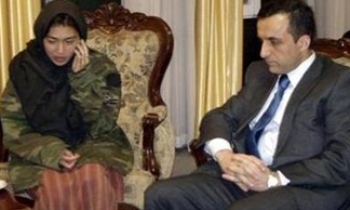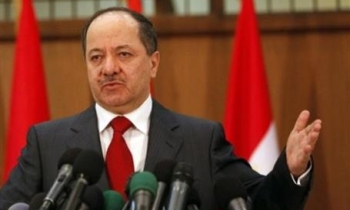Press freedom violations in Uzbekistan have escalated since the Andijan killings in May 2005. There has been a growing tally of assaults, threats, beatings, sentences, expulsions and office closures, culminating in that of Radio Free Europe / Radio Liberty (RFE/RL) on December 12, Reporters sans Frontières (RSF) has said. The offices of the BBC and media training organisation Internews have been shut down in the past few months.
"We are particularly pessimistic about the shocking state of the media in Uzbekistan which has deteriorated sharply since the Andijan uprising in May 2005," RSF said. "We are very worried by this terrible toll and the climate of censorship and witch-hunt against the independent media orchestrated by the Uzbek authorities," it said.
Uzbek foreign ministry officially closed the offices of RFE/RL on December 12. The minister refused to grant annual accreditation to its local office, which is obligatory for all media wishing to work in the country. Four of its journalists – Sadriddin Ashurov, Oguljan Rajapova, Mirasror Akhrorov and Gulnar Bayjanova – also had their official accreditation suspended.
In a letter to RFE/RL president Geoffrey Trimble, the ministry said it had to take this decision because of "non-observance of rules regulating professional activity of correspondents of foreign media on the territory of the Republic of Uzbekistan."
"The Uzbek, Turkmen, Tajik and Kazakh services of Radio Liberty and the Tashkent bureau of the Uzbek service, in their work on our country’s territory, actively use so-called freelance correspondents (stringers) from the citizens of the Republic of Uzbekistan, who � without the accreditation in the ministry � illegally pursue journalistic activity, which is a serious violation of laws of Uzbekistan," it said.
RFE/RL's Tashkent bureau had tried to renew its accreditation. "We appealed several times in the past four months, but the ministry only responded that our application was being reviewed, without giving us any concrete answers," a staffer for the Prague-based broadcaster said. "While hindered, RFE/RL will not be deterred in its efforts to report accurately and objectively about events in Uzbekistan to the people of that country and throughout Central Asia," RFE/RL said in a statement.
"We condemn this latest example of the (President Islam) Karimov regime's contempt for press freedom," said Ann Cooper, Executive Director of the Committee to Protect Journalists (CPJ). "There are now virtually no independent voices left in the media inside Uzbekistan."
The office had already been struggling to operate since the existing accreditation expired. One of the radio’s correspondents, Nosir Zokirov, one of the first journalists on the spot in Andijan, was sentenced to six months in prison on August 26, 2005 for his coverage of the storming of the prison in Andijan.
The government of President Karimov has pursued independent journalists since foreign media carried news of the May 13 massacre in the northeastern city of Andijan, where government forces shot and killed between 500 and 1,000 demonstrators, according to eyewitnesses and human rights groups. The BBC closed its Tashkent office in October citing government harassment.
In a report on December 13, RFE/RL said that at least nine correspondents in the Uzbekistan office had received telephone threats, as had members of their family. They had also been questioned by members of the security services, had their recording equipment seized and some had been beaten up.
"A former journalist who requested anonymity, told us that people cannot look at one particular press and particularly at opposition websites without risking being sacked from their jobs," RSF added.
After the closure of RFE/RL, independent Uzbek media is in freefall and has little remaining readership in the country. The weekly Hurriyat only sells 3,500 copies and the vast majority of newspapers belong to the government, state bodies or political parties. The main foreign news agencies are still present in Tashkent such as France-Presse (AFP), Reuters and Associated Press (AP), according to RSF.
They have to take the place of independent media in a media landscape that has been entirely sown up by the government of President Karimov. In Tashkent, however, publicly-owned Russian news agencies Ria Novosti, Itar-Tass and the private agency Interfax appear to be relatively objective in their coverage of Uzbek news, although they are much more controlled in Moscow. Other foreign media like the German international radio broadcaster Deutsche Welle have local correspondents but no permanent offices.
Internet remains Uzbekistan’s most independent media. There are a number of �citizen journalism’ sites, such as Ariena in Russian (www.freeuz.org) or websites run by opposition parties like the pro-democracy party Erk and another party, Birlik. However these last are often targeted for censorship and are routinely blocked by the authorities.









